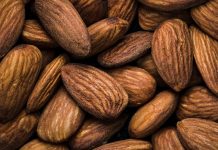
Cholesterol is a fatty substance found in our bodies that is essential for various bodily functions.
However, high levels of cholesterol, especially the “bad” cholesterol called LDL (low-density lipoprotein), can increase the risk of heart disease.
Fortunately, we can manage cholesterol levels through diet. In this study review, we will explore the research evidence behind managing cholesterol levels through diet using simple language suitable for 12-year-old students.
Understanding Cholesterol
Cholesterol is a type of fat produced by our bodies and obtained through certain foods. It plays a crucial role in building cell membranes and producing hormones.
However, excessive cholesterol can lead to plaque buildup in our arteries, increasing the risk of heart disease.
Types of Cholesterol
LDL (Low-Density Lipoprotein): Known as “bad” cholesterol, high levels of LDL cholesterol can contribute to plaque formation and narrow our arteries.
HDL (High-Density Lipoprotein): Known as “good” cholesterol, HDL cholesterol helps remove excess LDL cholesterol from our bloodstream, reducing the risk of heart disease.
The Role of Diet in Managing Cholesterol Levels
Making healthy food choices can help maintain optimal cholesterol levels and promote heart health. A heart-healthy diet focuses on reducing LDL cholesterol levels while increasing HDL cholesterol levels.
Fiber
The Cholesterol Manager Fiber is a type of carbohydrate found in plant-based foods. It helps lower LDL cholesterol levels and promotes healthy digestion.
Whole Grains: Foods like whole wheat bread, brown rice, oats, and whole grain cereals are high in fiber. They can be enjoyed as part of a balanced diet to support cholesterol management.
Fruits and Vegetables: Colorful fruits and vegetables, such as apples, oranges, berries, carrots, and broccoli, are rich in fiber, vitamins, and minerals. Including a variety of these foods in your meals can help maintain healthy cholesterol levels.
Healthy Fats
Choosing the Right Ones While some fats can increase cholesterol levels, others can have a positive impact on heart health.
Unsaturated Fats: These healthy fats can help lower LDL cholesterol levels and raise HDL cholesterol levels.
Good sources of unsaturated fats include avocados, nuts (like almonds, walnuts, and pistachios), and seeds (like flaxseeds and chia seeds).
Omega-3 Fatty Acids: Found in fatty fish like salmon, mackerel, and sardines, omega-3 fatty acids have been shown to lower triglyceride levels and reduce the risk of heart disease.
If you don’t consume fish, you can obtain omega-3s from plant-based sources like flaxseeds and chia seeds.
Limiting Saturated and Trans Fats
Saturated and trans fats can raise LDL cholesterol levels and increase the risk of heart disease. It’s important to limit the consumption of foods high in these fats.
Saturated Fats: These fats are mainly found in animal products like fatty meats, full-fat dairy products (like cheese and butter), and tropical oils (like coconut oil and palm oil).
Choose lean cuts of meat, opt for low-fat or skim dairy products, and use healthier cooking oils like olive oil or canola oil.
Trans Fats
Trans fats are artificial fats often found in processed and packaged foods like fried foods, baked goods, and margarine. Check food labels and try to avoid products that list “partially hydrogenated oils” in their ingredient lists.
Plant Sterols and Stanols
Nature’s Cholesterol Blockers Plant sterols and stanols are substances found in plants that can help lower LDL cholesterol levels.
Nuts and Seeds: Almonds, walnuts, and flaxseeds contain plant sterols and stanols, along with healthy fats. These can be included as part of a balanced diet for cholesterol management.
Fortified Foods: Some products, such as certain margarines and orange juice, are fortified with plant sterols and stanols. These can be helpful additions to a cholesterol-lowering diet.
Moderation and Portion Control
In addition to making healthy food choices, it’s important to practice moderation and portion control. Eating appropriate serving sizes and being mindful of calorie intake can help maintain a healthy weight and support cholesterol management.
Conclusion
Managing cholesterol levels through diet is an important step in promoting heart health.
By including fiber-rich foods, healthy fats, and cholesterol-lowering plant sterols and stanols, while limiting saturated and trans fats, we can maintain optimal cholesterol levels.
Remember, a balanced and varied diet, combined with regular physical activity and a healthy lifestyle, is the key to keeping our hearts happy and healthy.
Copyright © 2023 Scientific Diet. All rights reserved.








